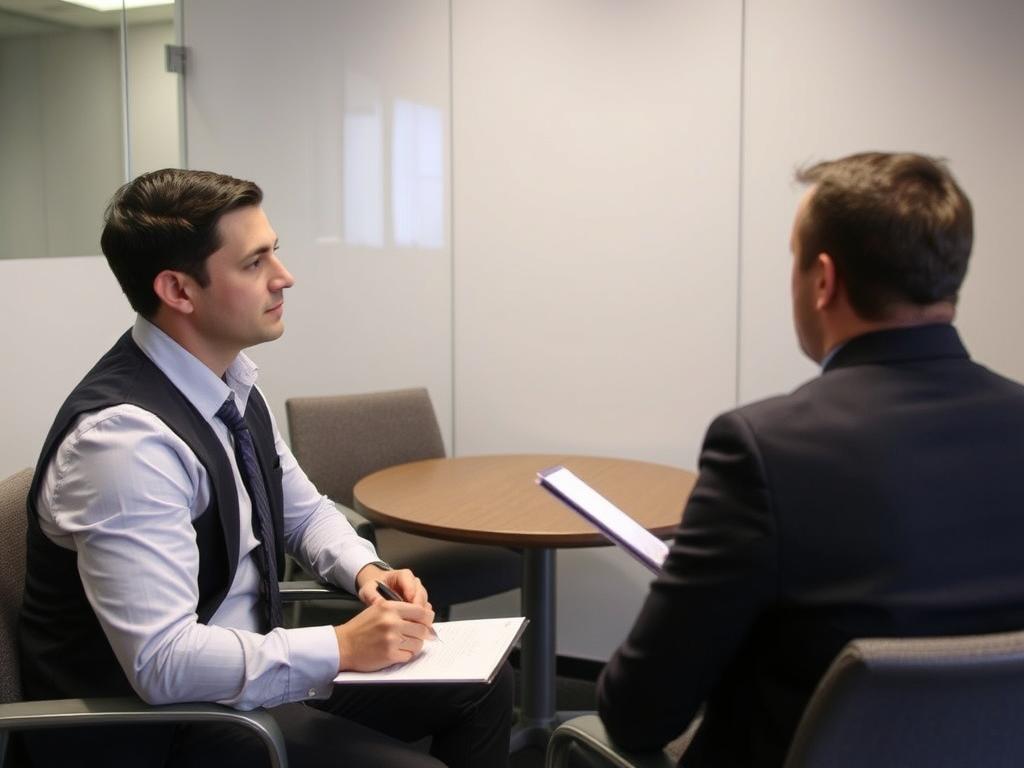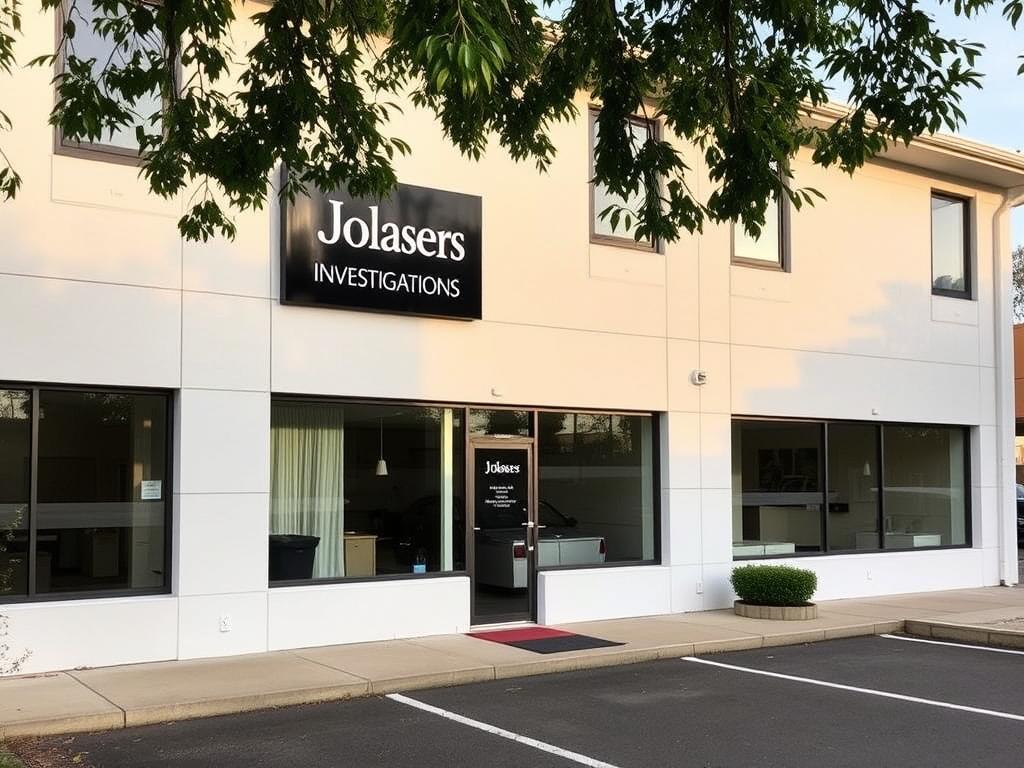blog
When serious allegations emerge in Australian small businesses, hesitation can prove costly. Delaying proper examination of employee conduct creates significant financial risks that extend far beyond immediate operational disruptions.
Timely resolution through professional investigation processes prevents minor issues from escalating into major crises. Memories fade, evidence disappears, and witnesses move on when matters aren’t addressed promptly.
Small businesses face particular vulnerability due to limited resources and expertise. The financial impact includes potential back-pay orders, compensation for unfair dismissal, and legal costs that can cripple operations.
Jolasers Investigations provides expert guidance to navigate these complex matters. Immediate professional consultation through 0418 101 164 helps implement effective protocols that protect your business.
Key Takeaways
- Delayed examination of employee conduct creates substantial financial risks
- Timely professional processes prevent minor issues becoming major crises
- Fading memories and lost evidence compromise investigation integrity
- Small businesses face particular vulnerability due to limited resources
- Financial impacts include compensation claims and legal costs
- Professional guidance helps implement effective protection protocols
- Immediate consultation can prevent costly operational damage
Introduction: The True Price of Procrastination
Every day that passes without addressing serious concerns creates deeper financial exposure for Australian companies. The reluctance to initiate proper examination procedures often transforms manageable situations into catastrophic financial burdens.
Why timely action matters for Australian businesses
Immediate response to employee concerns demonstrates organisational commitment to fairness. Delays can erode trust and create perceptions of indifference toward serious matters.
Australian legislation mandates specific timeframes for addressing employment issues. Businesses that procrastinate risk violating these regulatory requirements.
Key benefits of prompt action include:
- Preservation of critical evidence before it deteriorates
- Maintenance of witness recall accuracy
- Demonstration of compliance with fair work obligations
- Prevention of secondary issues developing from initial complaints
The financial impact of delayed workplace investigations
Postponing proper examination processes leads to substantial monetary penalties. Australian courts frequently award significant compensation for procedural failures.
Financial consequences may include:
- Back-pay orders for affected staff members
- Compensation claims for unfair dismissal
- Legal fees exceeding tens of thousands of dollars
- Regulatory fines for compliance breaches
The cumulative effect can devastate small business operations. Many organisations underestimate these potential costs until facing actual claims.
Get prompt professional assistance: 0418 101 164
Jolasers Investigations provides immediate expert guidance for time-sensitive situations. Their professional team understands Australian employment law requirements.
Early consultation helps establish proper protocols from the outset. This includes compliance with communication monitoring regulations requiring 14 days written notice.
Businesses must ensure employees know about existing IT policies. Professional assistance ensures all procedural elements receive proper attention.
Contact Jolasers Investigations at 0418 101 164 for urgent matters. Their expertise helps navigate complex situations while protecting organisational interests.
Understanding Workplace Investigation Fundamentals
Australian businesses face complex decisions when addressing employee concerns. Knowing when and how to proceed requires understanding fundamental principles that govern proper examination processes.

What constitutes a workplace investigation in Australia
Formal examination processes address serious allegations within employment contexts. These structured procedures examine claims of misconduct, bullying, or policy breaches.
The process involves gathering facts through interviews and evidence collection. It aims to determine whether allegations have substance and require action.
Professional investigators follow established protocols to ensure fairness. They maintain objectivity while examining all relevant information.
Legal obligations under Fair Work legislation
Australian employers must comply with the Fair Work Act 2009. This legislation mandates specific responsibilities when handling employee complaints.
Key requirements include providing procedural fairness to all parties. Respondents must receive detailed allegations and reasonable response time.
Access to support persons represents another critical obligation. Employers must also maintain confidentiality throughout the process.
When investigation becomes necessary versus alternative approaches
Formal processes become essential when allegations involve serious misconduct. Potential policy breaches or legal violations typically require thorough examination.
Minor issues might resolve through informal management discussions. These approaches work well for concerns that don’t warrant full procedures.
Employers should consider allegation seriousness and potential consequences. Organisational risk assessment helps determine the appropriate response level.
Jolasers Investigations provides expert guidance on these decisions. Their team helps Australian businesses navigate complex employment situations effectively.
For prompt professional assistance, telephone 0418 101 164. Early consultation ensures proper handling of sensitive matters from the outset.
The Essential Workplace Investigation Process
A structured approach to examining employee matters separates effective resolution from costly missteps. Australian businesses benefit from understanding the systematic methodology that underpins professional examination procedures.
Preparation and planning phase
Thorough preparation establishes the foundation for successful outcomes. This critical stage involves assessing investigator suitability and identifying potential conflicts of interest.
Comprehensive investigation plans with clear terms of reference guide the entire process. Background information gathering ensures proper context understanding before commencing formal procedures.
Conducting thorough evidence gathering
Evidence collection requires meticulous attention to detail and preservation. Documentary materials, electronic communications, and witness statements form the core components.
Physical evidence relevant to allegations must be secured promptly. Proper chain of custody procedures maintain integrity throughout the examination.
Interview techniques and procedural fairness
Skilled questioning techniques obtain specific details while maintaining sensitivity. Interviewers must manage emotional states while gathering factual information.
Procedural fairness requires clear process explanations and support person access. Interviewees must understand their rights and participation requirements.
Respondents receive all credible, relevant evidence before final determinations. Adequate response opportunity represents a fundamental fairness requirement.
Making findings and preparing reports
Evidence assessment uses the balance of probabilities test rather than criminal standards. Credibility, consistency, and reliability form the evaluation framework.
Investigation reports must document how evidence supports conclusions reached. All allegations require addressing through rational conclusions based on factual analysis.
Witness statement verification ensures accuracy before finalisation. Appropriate recommendations complete the professional reporting process.
Proper documentation creates essential records for potential legal proceedings. Jolasers Investigations ensures meticulous attention throughout this critical phase.
For professional guidance through complex examination procedures, telephone 0418 101 164. Expert assistance ensures proper handling from initial preparation through final reporting.
Key Considerations for Australian Employers
Selecting the right approach to employee matters requires careful consideration of multiple factors. Australian organisations must balance practical concerns with legal obligations when addressing sensitive employment issues.
Choosing between internal and external investigators
The decision to use internal or external resources depends on case complexity and potential bias concerns. Internal staff understand organisational culture but may face impartiality challenges.
External professionals offer objectivity and specialised expertise. The Fair Work Commission case Foley v Melbourne Health demonstrates where external appointment became necessary.
Key evaluation factors include:
- Seriousness of the alleged conduct and potential outcomes
- Need for legal professional privilege protection
- Seniority of involved employees and reporting relationships
- Available organisational resources and expertise
Maintaining procedural fairness throughout
Consistent application of established protocols ensures fair treatment for all parties. This includes providing clear allegations and reasonable response time.
Equal treatment requires transparent communication at each stage. Respondents must receive all relevant evidence before final determinations.
Support person access represents a fundamental fairness requirement. Documentation of each step creates essential evidence of compliance.
Managing confidentiality and privacy concerns
Information disclosure must balance privacy rights with investigation needs. Only necessary parties should receive sensitive details.
Australian Privacy Principles govern handling of personal information. Careful management prevents unnecessary privacy breaches.
Confidentiality protocols protect all involved individuals. They also maintain the integrity of the examination process.
Timeliness versus thoroughness balance
Prompt completion prevents evidence deterioration and witness memory fade. However, comprehensive evidence collection requires adequate time.
Suspension decisions must balance operational needs with evidence protection risks. Rushed processes often lead to procedural errors.
Thorough analysis ensures findings withstand potential challenges. Jolasers Investigations helps organisations achieve this critical balance.
For professional guidance on complex employment matters, telephone 0418 101 164. Expert assistance ensures proper handling from initial assessment through final resolution.
Common Pitfalls and How to Avoid Them
Many Australian businesses encounter avoidable mistakes during examination procedures. These errors can compromise outcomes and create significant legal exposure. Understanding common missteps helps organisations implement effective safeguards.
Professional guidance ensures proper handling from initial assessment through final resolution. Jolasers Investigations provides expert support to navigate these complex situations.
Procedural fairness failures
Fairness breaches often occur when respondents receive insufficient information. They must understand specific allegations against them clearly.
Adequate response time represents another critical requirement. Rushed timelines prevent proper consideration of the matters involved.
Access to relevant evidence before final determinations ensures balanced outcomes. Support person availability throughout the process maintains proper standards.
Inadequate evidence handling
Poor evidence management undermines examination integrity. Key documents sometimes go uncollected or improperly stored.
Witness interviews require careful planning and execution. Leading questions or aggressive techniques compromise information quality.
Chain of custody protocols preserve evidence reliability. Proper documentation maintains authenticity for potential legal proceedings.
Poor communication with involved parties
Unclear timelines create uncertainty and stress for everyone involved. Regular updates demonstrate organisational commitment to transparency.
Process steps and expected outcomes require clear explanation. Participants should understand their roles and responsibilities throughout.
Confidentiality breaches occur when information reaches unnecessary parties. Proper security protocols protect sensitive details effectively.
Delayed timelines and their consequences
Prolonged procedures lead to faded memories and lost evidence. Witnesses may leave the organisation or become unavailable.
Extended timeframes increase stress levels for all participants. Prompt resolution demonstrates organisational efficiency and commitment.
Financial risks escalate with prolonged examination periods. Legal costs and potential penalties increase significantly over time.
| Common Pitfall | Potential Consequence | Prevention Strategy |
|---|---|---|
| Procedural fairness failures | Legal challenges and compensation claims | Clear allegations and adequate response time |
| Inadequate evidence handling | Compromised findings and failed defences | Proper documentation and chain of custody |
| Poor communication practices | Participant frustration and process challenges | Regular updates and clear explanations |
| Delayed examination timelines | Faded memories and lost evidence | Structured scheduling and prompt action |
| Confidentiality breaches | Privacy violations and trust erosion | Limited disclosure and secure protocols |
Professional assistance ensures proper handling of complex employment matters. Jolasers Investigations provides expert guidance through every examination phase.
For prompt attention to sensitive situations, telephone 0418 101 164. Their expertise helps Australian businesses avoid common pitfalls effectively.
Conclusion: Protecting Your Business Through Proper Processes
The documentation generated from thorough examination processes serves as vital protection against potential legal challenges. Comprehensive records demonstrate reasonable steps taken to address sensitive employment matters, potentially limiting organisational liability.
Professional assistance ensures proper handling of complex situations from initial assessment through final resolution. Jolasers Investigations provides expert guidance that balances legal requirements with practical operational considerations.
Effective communication throughout the procedure manages expectations and maintains stability. This strategic approach supports sound decision-making regarding disciplinary action and policy improvements.
For prompt attention to sensitive matters, telephone 0418 101 164. Their expertise helps Australian businesses navigate complex employment situations while focusing on core operations.
FAQ
What is the main financial risk for small businesses delaying workplace investigations?
Delayed investigations often lead to increased legal costs, potential compensation claims, and operational disruptions that significantly impact profitability and business continuity.
How quickly should an employer begin an investigation after receiving a complaint?
Employers should commence the process immediately upon receiving a complaint to comply with Fair Work obligations and minimise potential financial and reputational damage.
What are the key legal requirements under Australian Fair Work legislation?
The Fair Work Act requires employers to provide procedural fairness, conduct unbiased inquiries, maintain confidentiality, and complete investigations within reasonable timeframes.
When should businesses consider engaging external investigators?
External experts should be engaged when allegations involve senior management, require specialised expertise, or when internal resources lack appropriate investigation experience.
What constitutes procedural fairness in workplace investigations?
Procedural fairness involves providing all parties with opportunity to respond to allegations, maintaining impartiality, and ensuring transparent decision-making processes throughout.
How can employers balance thoroughness with timeliness in investigations?
Employers should establish clear timelines, prioritise critical evidence gathering, and maintain regular communication while ensuring comprehensive assessment of all relevant information.
What are common investigation mistakes that increase business risks?
Common errors include delayed responses, inadequate documentation, confidentiality breaches, and failure to provide proper support mechanisms for involved parties.
How should employers handle confidentiality during sensitive investigations?
Employers must limit information disclosure to necessary parties, secure all documentation, and implement clear communication protocols to protect privacy and maintain integrity.


















